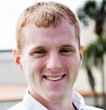By Bob Allen
The day after George Zimmerman was found not guilty of the second-degree murder of Sanford, Fla., teenager Trayvon Martin, a local pastor’s sermon series on the Ten Commandments landed on the Sixth Commandment, “thou shalt not kill.”
 Alan Brumback, lead pastor of Sanford’s Central Baptist Church, said many people believe that because they’ve never committed a homicide or had an abortion, the Bible’s prohibition on murder doesn’t apply to them.
Alan Brumback, lead pastor of Sanford’s Central Baptist Church, said many people believe that because they’ve never committed a homicide or had an abortion, the Bible’s prohibition on murder doesn’t apply to them.
“We often take the command ‘thou shalt not kill’ or ‘thou shalt not murder,’ and we often apply it to someone else,” Brumback said. “That’s for George Zimmerman. That’s for Casey Anthony. That’s for Adolf Hitler. That’s for that thug down the street. That’s for that doctor. That’s for whomever, but it’s not for me.”
In reality, Brumback said, everyone is guilty of “hidden murder” if they consider Jesus’ explanation of the commandment’s full meaning in Matthew Chapter 5.
“We break the Sixth Commandment when we hate,” Brumback said. “When we hate someone who doesn’t look like us, dress like us, act like us, have the same skin color as us, we are committing murder.”
The good news, said the graduate of Southern Baptist Theological Seminary in Louisville, Ky., is that Christ came to save murderers.
Brumback, the only white minister to take the stage with African-American ministers including Al Sharpton at a public rally for supporters of the slain black teen in February 2012, didn’t dwell much in his Sunday morning sermon on the lengthy courtroom drama that sparked national debate on issues including stand-your-ground gun laws and racial profiling.
“In our city, people are in a tizzy and I think the media is trying to blow it out of proportion, but there’s some hurt,” Brumback said. “I don’t care which side you land on, there’s hurt, and there are enemies.”
“I think the best thing that is going to bring healing is that we as a church be the church and love our enemies,” he told the racially mixed congregation. “We should not expect the world to love their enemies, but we should expect God’s people to love theirs.”
